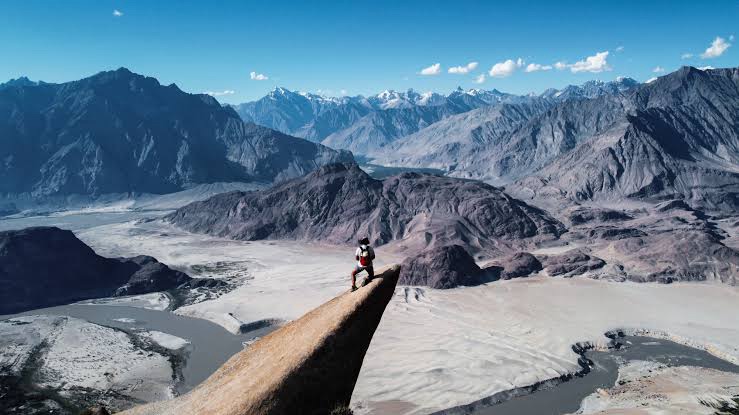The global mountaineering community is in mourning after a series of fatal accidents in Pakistan’s peaks. Yet, authorities have made it clear that expeditions will not be restricted. This policy is seen as a crucial step in balancing safety concerns with the survival of local economies and the preservation of Pakistan’s iconic mountain tourism.
Death on the Extreme Slopes of K2
On August 11, 2025, Chinese climber Guan Jing, 37, successfully reached the summit of K2, the world’s second-highest mountain. But his triumph turned to tragedy when he was struck by falling rocks on his descent via the notorious Abruzzi Spur. Rescue efforts were delayed due to severe weather conditions and high-altitude challenges. It wasn’t until August 14 that his body was manually retrieved and transported to Skardu, before being flown to Islamabad for repatriation to China.
Mourning on Laila Peak
Just two weeks earlier, the world of sport lost a champion. Laura Dahlmeier, Germany’s Olympic biathlete and two-time gold medalist, died on July 28, 2025, when struck by falling rocks while climbing Laila Peak in Gilgit-Baltistan. Her death deeply shocked both the mountaineering and winter sports communities. Remarkably, Dahlmeier had left a message asking that no one risk their lives to recover her remains. Honoring her wish, rescue teams halted operations, leaving her body at the site a symbolic testament to courage and sacrifice in extreme mountaineering.
Pakistan Refuses to Restrict Expeditions
Government spokesperson for Gilgit-Baltistan, Faizullah Faraq, announced that Pakistan will not issue bans or strict warnings against expeditions. According to him, mountaineering risks are well understood by professional climbers who choose to face such dangers. Instead of restrictions, the government will invest in stronger infrastructure, better rescue training, and improved early warning systems along mountain routes.
Expeditions as a Local Economic Lifeline
Mountaineering is not only about exploration, it also sustains the local economy. From May to September, thousands of porters, guides, and tour operators rely on the climbing season for their livelihoods. The activity generates millions of dollars in income, supporting both households and broader regional tourism. A complete ban would severely damage the economic lifeline of Gilgit-Baltistan’s population.
Climbers Accept the High Risks
Climbers traveling to Pakistan are typically highly experienced professionals from around the world. They are fully aware of the dangers of avalanches, sudden storms, and falling rocks at altitudes above 7,000 meters. This awareness underpins the government’s stance to keep routes open while focusing on risk education and strengthening emergency facilities.
International Response and Future Outlook
The tragedies on K2 and Laila Peak have sparked international debate over the ethics of extreme climbing, the adequacy of safety facilities, and the responsibilities of host nations. While criticism has surfaced, Pakistan’s decision is regarded as a middle ground between respecting climbers’ freedom and sustaining thousands of families dependent on the industry. Mountaineering associations worldwide have urged stronger international cooperation on rescue training, safety technology, and unified global safety standards.
The deaths of Guan Jing and Laura Dahlmeier highlight the perilous side of mountaineering but also the human drive to conquer nature despite its risks. Pakistan’s choice to keep routes open reflects its belief that individual courage, community solidarity, and economic survival can coexist. From these tragedies, the world is reminded that the highest peaks are not only about achievement but also about life, choices, and the price paid to pursue them.




